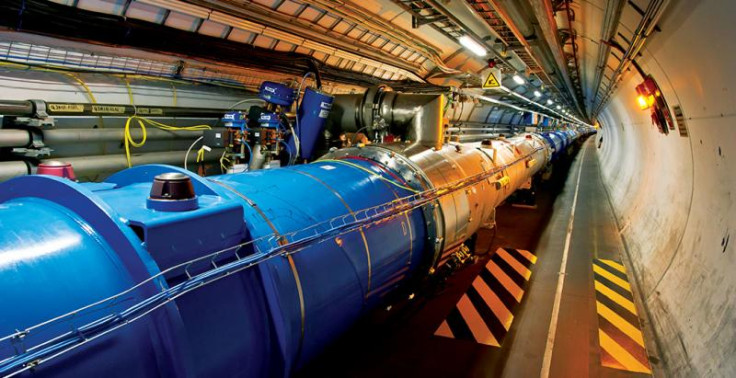New record set on scientific collaboration with 5,154 scientists working on a paper

A new record for collaboration on a scientific study has been set by a physics paper that saw 5,154 authors work together.
The study saw the scientists pool data from Cern's detectors to get the most precise estimate of the mass of the Higgs boson.
Published on 14 May in Physical Review Letters, the 33-page article saw 24 pages taken up to list the authors and their institutions.
Incidentally, it was yet another article about the CMS experiment at the Large Hadron Collider (LHC) that held the previous record with 3,000 authors working together in 2008.
That was before the machine started colliding protons.
The latest study involved scientists from two teams that operate Atlas and CMS, two massive detectors at the LHC at Europe's particle collider at Cern.
Each team involves researchers from dozens of institutions and countries.
"The biggest problem was merging the author lists from two collaborations with their own slightly different styles," says Robert Garisto, an editor of Physical Review Letters. "I was impressed at how well the pair of huge collaborations worked together in responding to referee and editorial comments," he adds.
Every author name will appear in the print version of the Physical Review Letters paper, says Garisto, writes Nature.
Another paper announcing the Atlas team's observation of the Higgs particle in 2012 had 2,932 authors, demonstrating that collaboration among particle physics scientists is one of the strongest in the field of science today.
No wonder that, considering that the particle collider is expected to churn some mini black holes, dark matter and throw light on extra dimensions of the universe.
Proton beams began colliding with each other inside the Large Hadron Collider at Cern last week after a major two-year shutdown for repairs and upgrades two years ago.
Scientists hope to create conditions similar to what immediately followed the Big Bang 13.8 billion years ago, even if only for short durations.
© Copyright IBTimes 2025. All rights reserved.





















